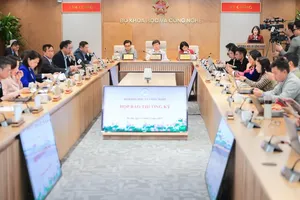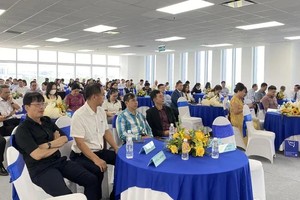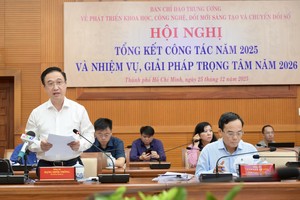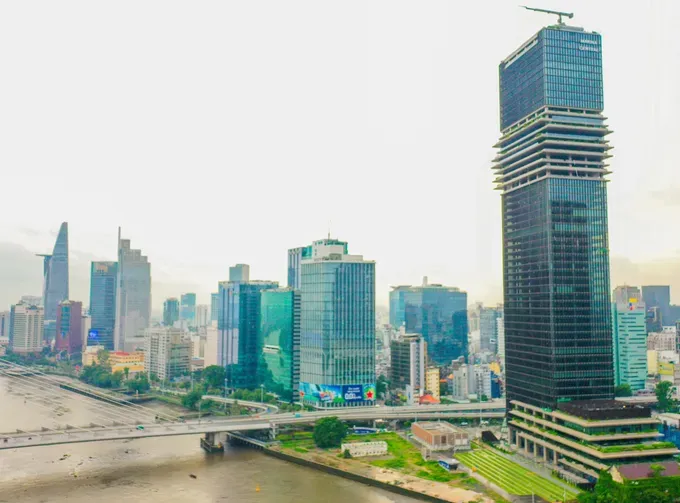
Encouraging private sector participation
As of 2024, approximately 17 million Vietnamese citizens own crypto assets, placing the nation 7th globally in terms of ownership. This figure was announced by Chairman Phan Duc Trung of the Vietnam Blockchain and Digital Asset Association (VBA), at a training session on “Legal Framework and Identification of Crypto Asset Fraud Risks” organized by the VBA and 1Matrix Co. on August 8.
According to the association, this number represents a decrease of about 4 million from 2023, when Vietnam ranked 3rd globally with 21 million crypto asset owners.
While the market is vibrant and full of potential, it currently operates in a legal “gray zone” as it has not yet been officially recognized, creating severe risks for investors.
However, in a significant policy signal, Deputy Minister of Finance Nguyen Duc Chi announced at a recent government press conference that the Ministry is drafting a Resolution to pilot the issuance and trading of crypto assets domestically. This initiative is based on extensive research into regional and international models and an assessment of current citizen participation.
The Ministry of Finance has presented its proposal to the Government, which has in turn reported to the Politburo to seek official guidance. Once the Politburo issues its conclusion, the Ministry will finalize the proposal and submit it to the Government to issue the necessary regulations. If the approval process proceeds favorably, the pilot program could commence as early as this month, August 2025.
Deputy Minister Nguyen Duc Chi elaborated that the ministry will define clear criteria and standards for selecting participants, encompassing information technology infrastructure, technical processes, financial capacity, and professional expertise.
A noteworthy aspect of the proposal is its explicit encouragement of private sector participation in providing crypto asset services, a move that aligns with the Politburo’s Resolution No. 68-NQ/TW, issued on May 4, 2025 on private economic development and favorable conditions for capable and innovative enterprises to participate in the new field.
During the pilot phase, more than one exchange will be licensed to foster a healthy competitive environment, though the number will be controlled to facilitate effective monitoring. The pilot is slated to last for five years from the date the Government’s Resolution takes effect, providing ample time for businesses to operate their systems and for regulators to conduct a comprehensive evaluation.
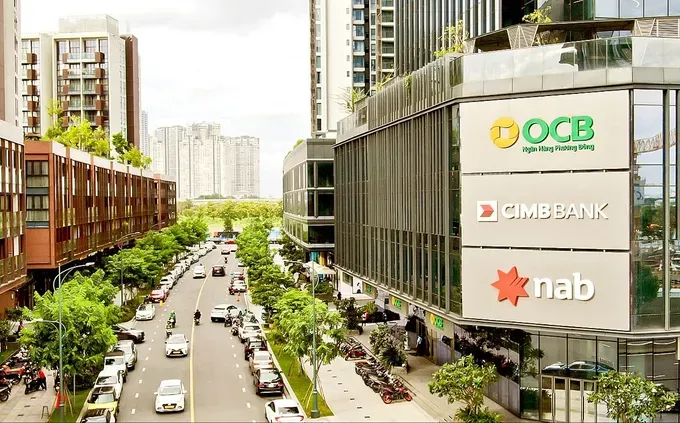
New legal ecosystem for digital finance
Providing further detail, Deputy Head To Tran Hoa of the Securities Market Development Department (under the State Securities Commission) explained that the draft Resolution imposes stringent conditions on exchange operators.
These include a minimum charter capital of VND10 trillion (US$400 million), a technology system meeting Level 4 information security standards, and strict requirements regarding shareholders, personnel, and transparent internal governance. All issuance and trading must be conducted through licensed service providers to ensure transparency and mitigate risks such as money laundering and terrorist financing.
The draft also specifies a detailed shareholder structure: 65 percent of capital must be held by institutions, with at least 35 percent of that coming from two of five designated institutional types (commercial banks, securities firms, fund managers, insurance companies, or technology firms). Foreign ownership will be capped at 49 percent. The chosen firms aren’t prioritized; their existing foundations allow for immediate, test-free exchange operations.
On the critical issue of cybersecurity, Lieutenant General Nguyen Minh Chinh, Vice Chairman of the National Cybersecurity Association, outlined three priorities for a healthy blockchain ecosystem:
- designing security standards from inception,
- enhancing rapid cyber threat detection and response,
- ensuring legal compliance with international standards for anti-money laundering and data protection.
From a regulatory perspective, Director Nguyen Khac Lich of the Information Technology Department (under the Ministry of Science and Technology) emphasized that achieving the Government’s target of double-digit growth requires a new development space. “That new space is the digital space”, he stated, “created by digital technology and supported by open regulations.”
The Director added that the Government’s stance is to encourage innovation within a clear legal framework. Approximately 10 laws will be enacted to regulate issues related to digital finance and technology. Several, such as the Law on Digital Technology Industry and the Law on Data, have already been passed.
In the short term, the Law on Digital Technology Industry, with its specific definitions of crypto assets, will help bring the nation’s millions of asset owners out of the legal “gray zone”. In the long term, this suite of laws will form a complete legal ecosystem for the nation’s digital economy.
Deputy Governor Pham Tien Dung from the State Bank of Vietnam commented that Vietnam has formally laid the legal groundwork for digital assets through three key events:
- the National Assembly passed a resolution allowing specialized exchanges, including crypto assets;
- the Ministry of Finance has submitted its draft pilot program;
- the Law on Digital Technology Industry has officially defined concepts related to digital, virtual, and crypto assets.
On this basis, Vietnam will pilot a crypto asset exchange at its international financial center, marking a breakthrough in our integration with the global fintech market.
Assoc Prof Dr Tran Hung Son from the Banking Technology Research Institute shared that a legal framework for digital assets will bring significant economic benefits, including tax revenue, foreign capital attraction, and support for startups.
However, investors’ greatest desire is for transparency, from the legal system to operational mechanics, to protect them from risk and manipulation. This requires clear regulations, independent supervision, public transaction data, asset insurance, and effective dispute resolution mechanisms, alongside flexible tax and foreign exchange policies.
Director of Technology Le Manh of Kyber Network voiced that Vietnamese blockchain companies possess high-quality human resources in platform and system development. Their strength lies in rapid problem-solving and development speed, yet they sometimes lack confidence. This is an area that needs to be improved quickly so that Vietnamese blockchain enterprises can achieve a larger scale.














